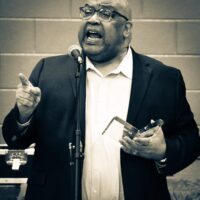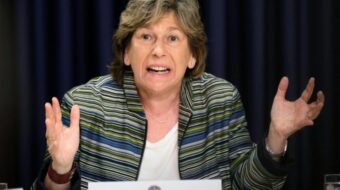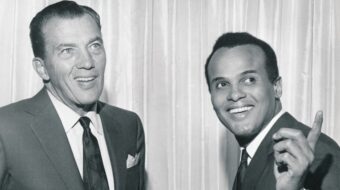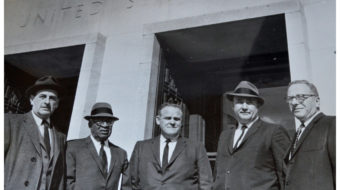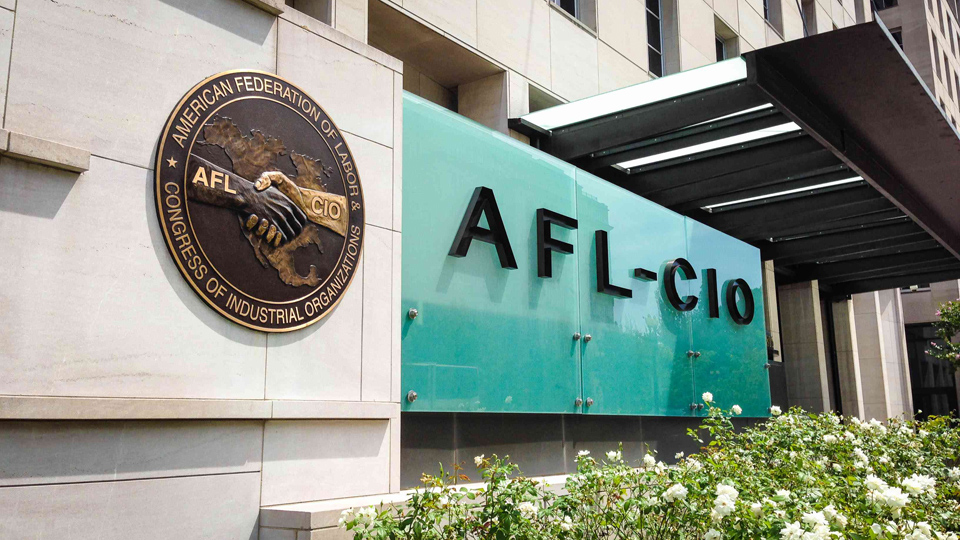
It would be an understatement to say that the past few years of witnessing public displays of racial injustice against black and brown communities have been devastating.
From the public executions of Mike Brown, Walter Scott, Philando Castile, and Renisha McBride, to the recent ban on Muslims enacted by newly elected Donald Trump, we find ourselves living in a time where racial anxiety and tensions are at an all-time high.
While we relished the election of the first black president, Barack Obama, we were soon reminded of the deep racial divisions our country still has to overcome in the recent appointments of known white nationalists to the top White House positions, and the confirmation of Attorney General Jeff Sessions – who has a history of racial discrimination in his court rulings.
Often, the issue of racial politics and discrimination is not seen as a central priority of the labor movement – but it is our duty to protect workers from racial discrimination in our work places and in our society. One of the labor movement’s most important challenges is to understand how racial discrimination hurts all working people and impedes our ability to protect workers’ rights.
In 2015, when the AFL-CIO created the Labor Commission on Racial and Economic Justice, we prepared ourselves to have serious internal conversations with leaders and members about the way racial politics and discrimination have affected our culture and undermined our relationships with communities of color.
We met with hundreds of union members and leaders and pushed past the uncomfortable feeling of talking about race. We brought affiliate union presidents and officers to Baptist churches and union halls in Oakland, St. Louis, Cleveland, Birmingham, Minneapolis, and Boston to listen to the stories of our hardworking brothers and sisters on how racism has affected them in their work and personal lives.
What we heard in every city was a cry for more union jobs for the black community, fair opportunities for people of color to advance to leadership positions within unions without facing undue obstacles or discrimination, and a call for labor leaders to speak out more forcefully on issues pertaining to racial injustice.
The issues of quality jobs and opportunities for all workers are central in this discussion. The side effects of racism are under-resourced schools, low-paying jobs without benefits, police brutality, mass incarceration, poor access to health care, and voter disenfranchisement. Racial political appeals and promises to white workers often lead to the passage of harmful policies like “right-to-work” or If we work together to defeat racial inequity in our workplaces, in politics, and society, we will win policies and elect politicians that help all working people. As AFL-CIO President Richard Trumka said as he addressed unions in St. Louis, “Together we stand, divided we beg. Our future is tied together since we all need the same thing, dignity and freedom.”
The future of labor is dependent upon us having a critical analysis of how race impacts white workers, workers of color, and immigrant workers. Our coalition to secure and retain jobs for working families will be stronger if we are able to see our struggles for justice connected to our fight for a stronger labor movement.
 Last month, our commission released a report and recommendations to address racial politics and economic justice for union leaders and rank-and-file members. We wrote the recommendations with the future of working people and the steps needed to grow unions as our inspiration.
Last month, our commission released a report and recommendations to address racial politics and economic justice for union leaders and rank-and-file members. We wrote the recommendations with the future of working people and the steps needed to grow unions as our inspiration.
This report is meant to both inspire current union leaders to make transformational changes and to address the racial politics that have driven a wedge between white workers and workers of color.
In addition to the report, we wanted to provide concrete tools for union members interested in having their own conversations on the impact race has on working people through a Framing Paper for Defeating Dog Whistle Politics and a Toolkit on Having Tough Conversations on Race and Economics.
This Black History Month, let’s focus on the future of labor – a future that empowers black workers to advance their leadership in unions, their contributions to their communities, and their political power to build a more vibrant and dynamic labor movement.
For all of the resources mentioned in his article and more, check out the new website of the Labor Commission on Racial and Economic Justice.
This article originally appeared on the AFL-CIO Now blog.


